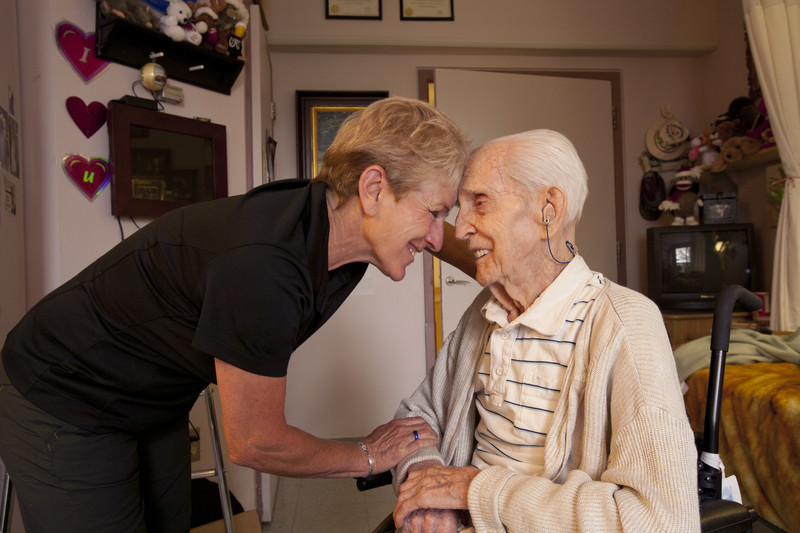Seniors at Greater Risk for Chronic Dehydration
Uncategorized | June 22, 2015
[vc_row][vc_column][vc_column_text]
Chronic Dehydration in Seniors
Staying hydrated may seem like a straightforward proposition: you get thirsty, you drink. However, particularly for seniors, it is not always this simple. Seniors are at a higher risk for dehydration than younger adults. In fact, one study showed that up to 48% of seniors were dehydrated upon admission to the emergency department for other issues. Very often it is not even obvious that the senior is chronically dehydrated because he or she may not show any clinical symptoms, such as increased thirst, dry mouth, dizziness, weakness, headache, constipation, or fatigue.
Why are seniors at a higher risk? Many factors come into play. For starters, as people age, the water content of their bodies diminishes. Older adults also do not feel thirst like younger adults: their thirst signals are not as active. Other reasons include the following:
- Seniors may be taking diuretic medications for certain conditions that may rid the body of salt and water.
- They may intentionally limit fluid intake because of incontinence or embarrassment over having to use the bathroom too often.
- They may have mobility issues that prevent them from getting up and getting something to drink, and they may be too embarrassed to ask for help.
- They may have chronic conditions, such as diabetes, that put them at a higher risk for dehydration.
- Seniors with dementia may not remember to drink.
Dehydration can affect the way the body metabolizes medication
The impacts of dehydration can be severe. Dehydration can affect the way the body metabolizes medications, making them less effective. This can be a critical problem for those who depend on those medications for their health and wellbeing. Dehydration can also exacerbate other medical conditions, cause kidney stones and urinary tract infections, compromise the immune system, cause delirium, impair cognition and memory, cause weight loss, and increase the risk of death.
Caregivers can help seniors stay hydrated
Friends, family, and caregivers can help seniors stay hydrated through constant monitoring. Typically, an adult should get about 2000 milliliters of fluids a day, which is about eight 8-ounce cups of water. Fluid intake, though, can come from food sources, such as soups or fruits and vegetables with a high water content, such as cucumbers, raw celery, raw tomatoes, and melons. Other ways to ensure seniors are getting an adequate amount of fluids include
- regularly offering beverages that the senior likes,
- ensuring that water is within reach all day so the senior does not need to ask for it,
- providing cups with handles or straws to help seniors who have physical limitations,
- offering smaller beverages more frequently so it does not seem overwhelming to finish a serving, and
- minimizing caffeinated or sugary beverages since too much of either caffeine or sugar can actually increase dehydration.
Hiring a professional caregiver who is familiar with the needs of seniors can also help. Professional caregivers can help monitor what the senior is eating and drinking and can make fluids readily accessible to help keep the senior hydrated. To learn more about how professional caregivers can help, contact your local Comfort Keepers® office today.
[/vc_column_text][/vc_column][/vc_row]
Individualized Home Care Options
Long-Term Home Care, 24 Hour Home Care & Short Term Care Options Customized for You







